New Poll Shows Americans Overwhelmingly Oppose Government Restrictions on Speech — Split on Kimmel’s Suspension
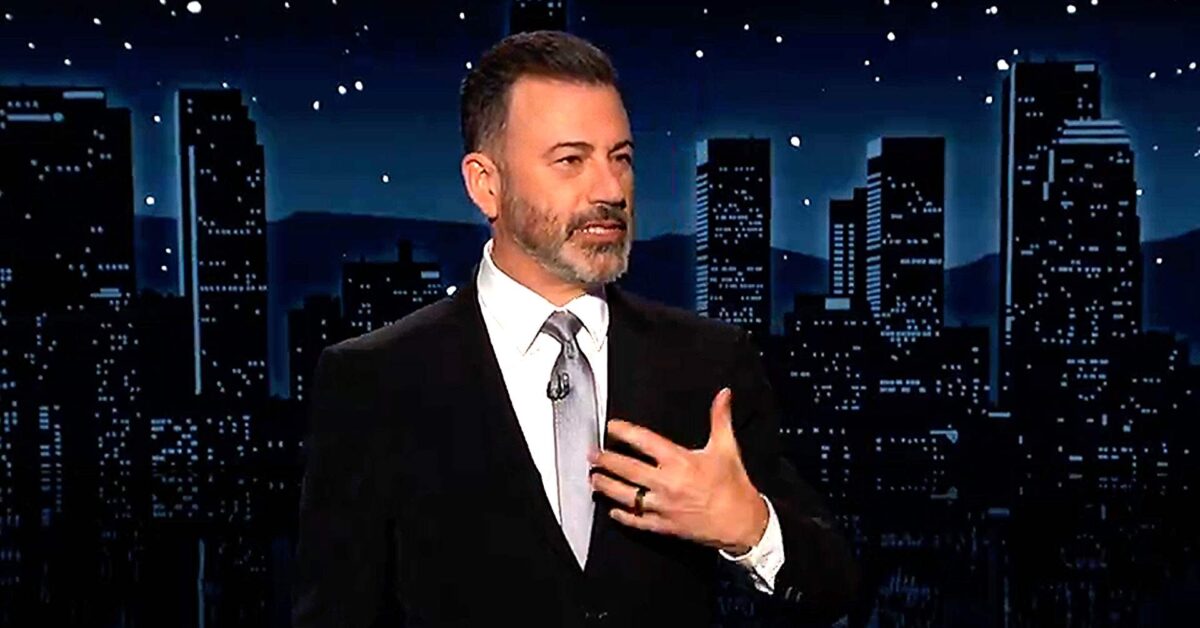
Screenshot via ABC.
A recent poll showed that while Americans are overwhelmingly against government restrictions on free speech, their views on the temporary suspension of late night talk show host Jimmy Kimmel were more varied, with noticeable differences along party lines.
Jimmy Kimmel Live! was “indefinitely suspended” by ABC after comments the comedian made about Tyler Robinson, the 22-year-old charged with the murder of Turning Point USA founder Charlie Kirk.
President Donald Trump and other Republicans lauded the suspension while Kimmel’s supporters denounced it as censorship, since it came in the aftermath of vociferous criticism from the president and comments from his Federal Communications Commission Chairman Brendan Carr that his agency “can do this the easy way or the hard way” if companies don’t “find ways to change conduct and take action.”
Last week, Disney announced that Jimmy Kimmel Live! would be returning to the air, after “thoughtful conversations with Jimmy” about comments that “were ill-timed and thus insensitive.” Nexstar and Sinclair initially announced they would not be airing Kimmel’s show on the dozens of local ABC affiliates that they own, but soon reversed that decision.
The online poll by Leger Marketing surveyed 1,010 adults in the U.S. from September 26 through September 29, with the results “weighted according to age, gender, region, education, ethnicity, and number of people in the household in order to ensure a representative sample of the American population.” The margin of error was +/- 3.1 percent.
Two of the questions focused on recent free speech controversies.
When asked if “the government should be allowed to restrict speech that disagrees with its views?”, respondents overwhelmingly said they were in opposition, with 79% saying no, 9% yes, and 12% didn’t know.
The responses stayed strongly in opposition across partisan categories. For Republicans, 73% said no, 13% said yes, and 14% didn’t know. Among Democrats, 82% said no, 12% yes, and 6% didn’t know. Independents showed the strongest opposition to government restrictions on free speech, with 84% saying no, 4% saying yes, and 12% didn’t know.
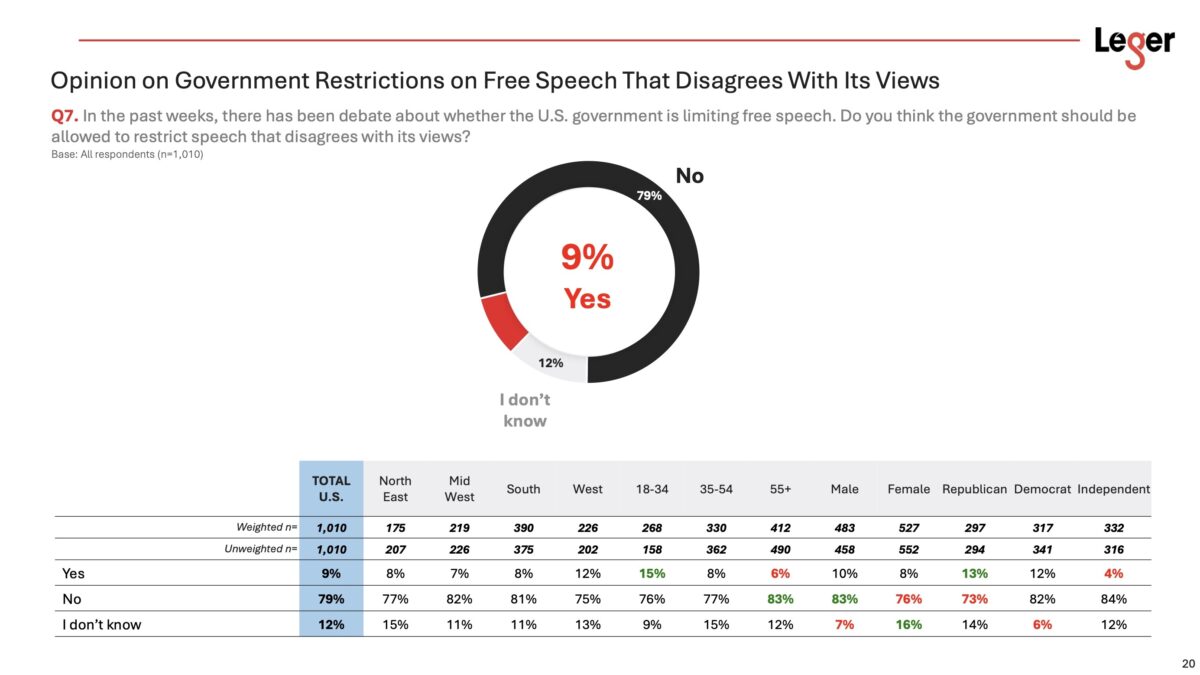
Graphic via Leger Marketing.
When asked specifically about Kimmel’s temporary suspension, however, pollsters got far more varied responses. This is possibly due to the fact that the Trump administration and other MAGA Republicans have insisted there was no improper government interference, while Kimmel’s supporters pointed to comments by Trump and FCC Chairman Carr to argue that there was. It should be noted, however, that several prominent conservatives denounced Kimmel’s suspension; Sen. Ted Cruz (R-TX) said such meddling by the FCC risked setting a precedent that was “dangerous as hell.”
The overall sample of Americans said they viewed the suspension of Jimmy Kimmel Live! as “an infringement on free speech” (41%), as compared to “a reasonable response under the circumstances” (29%), neither (14%), or I don’t know (16%).
Democrats were, unsurprisingly, most supportive of Kimmel, with 67% calling his suspension an infringement on free speech, 9% saying it was a reasonable response under the circumstances, 10% neither, and 14% didn’t know. Independents backed Kimmel to a lesser degree, with 42% calling his suspension an infringement, 22% calling it reasonable, 17% neither, and 19% didn’t know.
Republicans were far more likely to agree with the decision to suspend Kimmel, with only 16% calling it infringement, 59% saying it was reasonable, 13% neither, and 13% didn’t know.
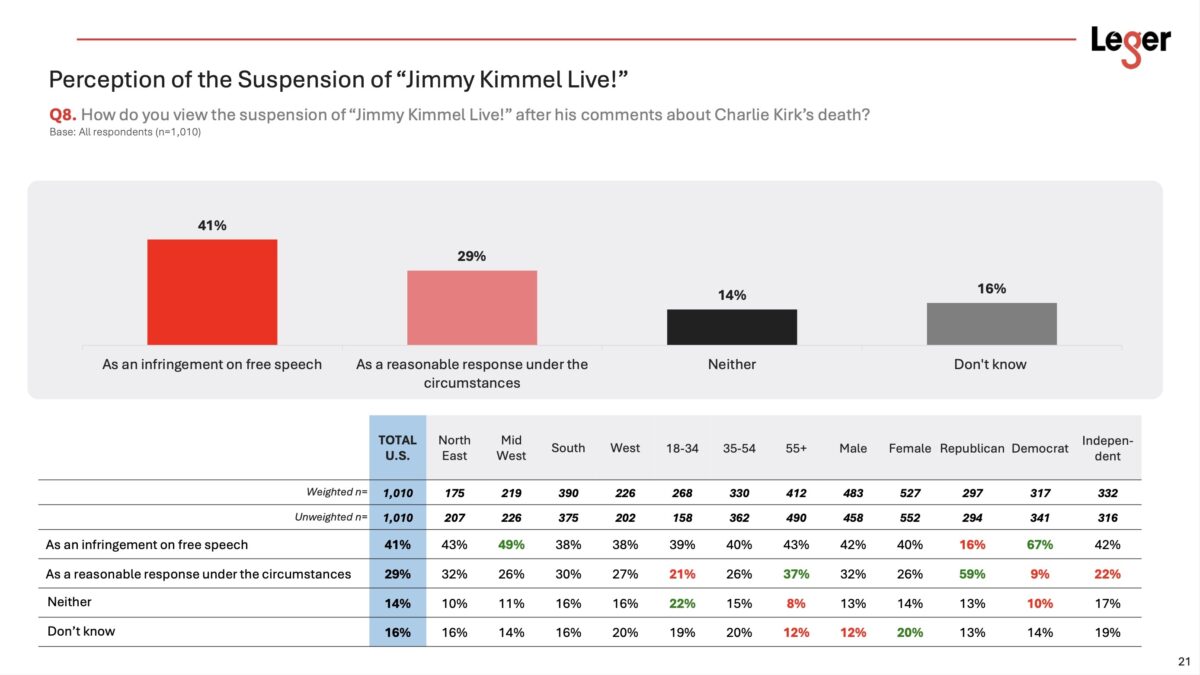
Graphic via Leger Marketing.
Another noteworthy question in the poll asked if respondents “believe that using acetaminophen (Tylenol) during pregnancy increases the risk of autism in children?” Contrary to claims by Trump and Secretary of Health and Human Services Robert F. Kennedy Jr., the research does not show a causal link.
For the overall sample, 47% said no, 18% said yes, and 35% didn’t know. A strong majority of both Democrats and Independents said no (66% no to 12% yes for Democrats; 45% no to 19% yes for Independents), but Republicans were more closely split: 29% said no and 26% said yes.
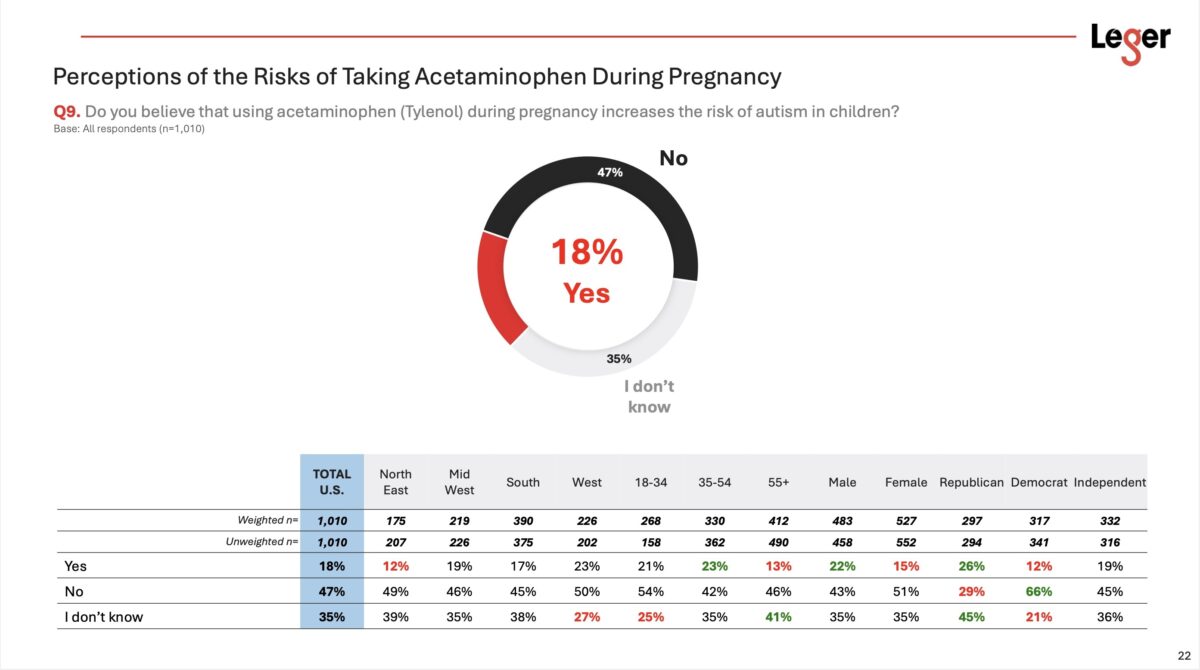
Graphic via Leger Marketing.


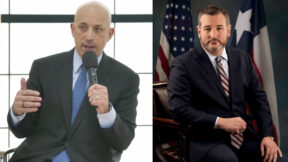

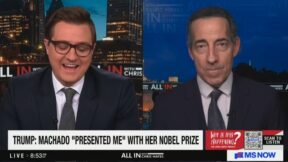
Comments
↓ Scroll down for comments ↓